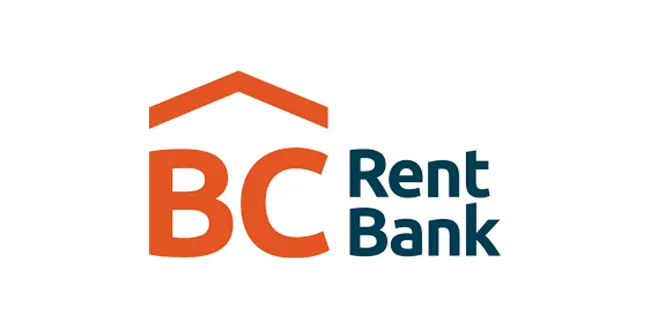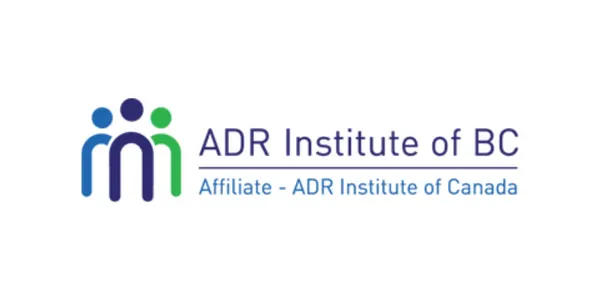
The best part about living in a co-op is that your membership never expires — it’s almost impossible to get evicted.
What you should know
Some conflict is inevitable when you share space. And co-ops tend to have their own internal procedures for resolving disputes. But that doesn’t mean problems can’t be resolved informally. You have to live next to your neighbours, after all! The goal should focus on peaceful resolution through respectful discussion.
Confrontation can be hard, though. Check out these tips for talking with your neighbours to help you get started.
If members can’t resolve an issue on their own, the co-op rules might spell out the next step. It could be mediation or arbitration.
Mediation involves trying to reach a compromise. This is done with the help of a neutral, third party. Check out our page on mediation for more information.
Arbitration is more formal (although still less formal than court). Here, a third party is appointed to act as a kind of judge. They hear evidence from both sides and make a decision. That decision is typically final, with no right to appeal.
Some disputes might be beyond informal resolution, mediation or arbitration.
If a member is very behind on their monthly housing charge (co-ops often use this term instead of “rent”), for example, the board might proceed with eviction. Or if there’s a heated issue between neighbours about noise or space use violations, the board might be completed to decide who is right, or levy fines.
If you’re a member in a tough situation, try to address it sooner than later. For example, if financial hardship is preventing you from paying your housing charge/rent, let the board know and propose a payment plan or schedule for when you will catch up. If you’re proactive, it might dissuade the board from considering eviction so quickly. You might be able to access a rent bank to help you with the payments.
"It felt like the co-op board had something against me — any time I did anything that was remotely offside of the “rules”, I’d get a formal letter from them and a fine. It felt unfair. I learned from other co-op members that I trust that you can appeal these sorts of decisions to an online tribunal. It was pretty easy to do; I didn’t need a lawyer. They agreed that the co-op board was overstepping their power. It felt validating to be able to be heard."
– Paula, Victoria

Let’s say you’re disappointed with how the co-op board handled your disagreement with, say, another neighbour’s loud, late night parties. You can appeal that decision to BC’s Civil Resolution Tribunal. This is an online dispute-resolution forum that doesn’t require a lawyer or have many formalities. It’s far easier and likely less expensive than going to court. But it doesn’t handle all co-op disputes. You can, however, use the CRT for issues with:
rules you think are being applied wrongly or unfairly;
access to co-op records;
meetings you think were held without proper notice; or
an association you think acted against the purpose stated in its memorandum
The CRT provides support and accommodations for those that might need it (more on that here). And while you don’t need a lawyer for the CRT, you can get the help of a trusted friend or family member.
Understand the eviction process in a co-op
“I’d been on the co-op board for three years. Recently, a member just stopped paying his housing charge. We’d tried to resolve things informally — giving him extensions and deferrals. This is the process set out in our rules. But we never made any progress. We finally decided that eviction was the only option. But following the formal eviction process took quite a bit of time and effort. We wanted to make sure that everyone had the opportunity to be heard.”
– Anthony, Nelson, BC

The essence of the rules around co-op evictions is everybody involved needs to be well informed and have time and space to be heard. The Cooperative Association Act has a baseline of rules that all co-ops must follow. These rules say both sides must be given a reasonable amount of time to review and respond to complaints.
The co-op board discusses any complaints about a member. This happens at a meeting, typically without the member present.
If the issue is very serious — like verbal or physical harassment, or repeated non-payment of housing charges — it’s considered “detrimental to the co-op.” The board can ask the member, in writing, to fix the problem or face eviction.
Note that if the issue is less serious, the board typically notifies the member, without the threat of eviction. There might be fines or other consequences involved, which a member can appeal (see above).
Check the co-op’s rules to see if there’s a proposed timeframe. Otherwise, it has to be a reasonable amount of time, depending on the circumstances.
If the problem isn’t fixed, the board must notify the member that the board plans to meet with them to formally consider eviction. The board provides at least seven days notice so the member has time to respond to the allegations. It’s very important that the board fully disclose to the member the nature of the complaints. Even if it means revealing the identity of the complainants in the process. This can be tricky: the board must balance protecting the privacy of the complainants with providing sufficient information. If the situation is particularly sensitive or involves a safety concern, the board may want to seek legal guidance as to what should be revealed.
The board, at the very least, must give the member the following information:
the resolution to be considered at the meeting;
the reason for terminating the member’s membership in the co-op;
the date, time and place of the directors' meeting;
how the member may appeal a decision to evict them from the co-op; and
that the member can attend the board meeting alone, or with a lawyer or someone else
When the board meets, they review the complaints and the member’s response to the allegations.
Typically, at least three quarters of the directors must agree to evict the member. If they do, the member is notified in writing within seven days of that decision. Unless the member appeals this decision (see below), they then have a month to vacate their unit.
If an evicted member never settles up with the co-op, the co-op can sue them for what they still owe. Claims for $5,000 or less go to the Civil Resolution Tribunal. Claims above $5,000 and up to $35,000 go to Small Claims Court. Claims above $35,000 go to BC Supreme Court.
Take action to appeal your eviction
“It felt like everyone in the co-op was against me. I’d been getting so many noise and other types of complaints, and then suddenly I was served with an eviction notice. I felt lost and helpless. But I reached out to other co-op members that I trusted and some friends and family, and learned how the eviction process worked in a co-op. I came up with a plan for my appeal, and had a chance to be heard in front of all of the members.”
– Andrea, Langford

If you receive an eviction notice, reply to the board in writing within seven days. In that letter you tell the board that you plan to appeal. In the next step, we can walk you through the appeal process, but don’t forget this key deadline of seven days to respond to an eviction notice!
There are situations where you have to apply directly to the Supreme Court to appeal an eviction; see below in Step 2 for more detail.
Getting an eviction notice, for any reason, can be very difficult. It’s normal to feel lost and anxious throughout the process. Always remember that you have the right to be heard, and the co-op board is obliged to follow a process with specific timelines before you can be evicted. If you have co-op neighbours that you are friendly with, consider seeking out their support or advice.
First, if you’re being evicted from your co-op for non-payment of housing charges, you appeal directly to the Supreme Court of BC. Scroll down to Step 5 to learn more about this — there’s a specific form you have to file with the court to get this process started (Form 73, you can find it on this page). You’ll have to include details about the co-op board’s decision, and the reasons you are appealing it (see below for the reasons). You can continue to occupy your unit until the appeal is heard.
If you are being evicted from your co-op for any other reason besides non-payment of housing charges, you can appeal the decision of the co-op board internally. This appeal gets heard by all the members of the co-op, not just the board of court. When this happens, it’s basically up to all of the members to make a decision.
Appeals take place at the next members’ meeting, where you’ll have a chance to tell your story to all the members.You can continue as a member until the appeal is heard.
There are specific grounds on which you can appeal your eviction. It might be that:
The principles of “natural justice” weren’t followed. For example, the board didn’t fully disclose the complaints against you, or didn’t give you an opportunity to be heard
The decision to evict is not based on the facts.
The steps for evicting a member, set out in the Cooperative Association Act, weren’t followed.
Either the board will call a special meeting, or the hearing will happen at the next general meeting of the members. In the meantime, get prepared: write out some speaking notes for the meeting, and ask friends and family for advice on what you might say and how you might respond to questions or criticism at the meeting.
At that meeting, you can bring a lawyer or another representative. Both sides will be heard — the co-op rules may have a procedure on this.
Then the members will vote on whether to uphold the board’s original decision to evict, or overturn it. Typically, it’s a majority vote. But it can be higher depending on the co-op’s rules or if required under the Cooperative Association Act: For example, if the reason for the eviction is conduct detrimental to the co-operative — like verbal or physical harassment — at least 75% of the members would have to confirm the eviction.
If the rest of the membership confirms the board’s decision, you have 30 days to apply to the BC Supreme Court, with Form 73 for an appeal. You’ll have to include details about the co-op board’s decision, and the reasons you are appealing it (see above in Step 2 for those reasons). You can continue to occupy your unit until the appeal is heard.
Note that if you’re appealing an eviction because you didn’t pay your housing charges, your appeal starts at the BC Supreme Court. (That is, not with the membership meeting described above.) You can continue to occupy your unit until your appeal is heard.
Who can help

BC Co-op Association
Supports co-operatives, educates the community, and advances the co-op sector.

Co-operative Housing Federation of BC
Member-based organization that supports co-ops and those living in them with tips and education.

BC Rent Bank
The BC Rent Bank offers financial support and connection to resources that can help keep you housed.

Access Pro Bono's Legal Advice Clinics
Volunteer lawyers provide 30 minutes of free legal advice to people with low or modest income.

Access Pro Bono’s Everyone Legal Clinic
Clinicians provide affordable fixed-fee services on a range of everyday legal problems.

BC Legal Referral Service
Helps you connect with a lawyer, notary or paralegal for a free 15- to 30-minute consult to see if you want to hire them.

BC Legal Directory
Search for a lawyer by community, area of law, or language spoken. From the Canadian Bar Association, BC Branch.

ADR Institute of BC
Maintains a roster of qualified mediators and arbitrators who help with dispute resolution.


